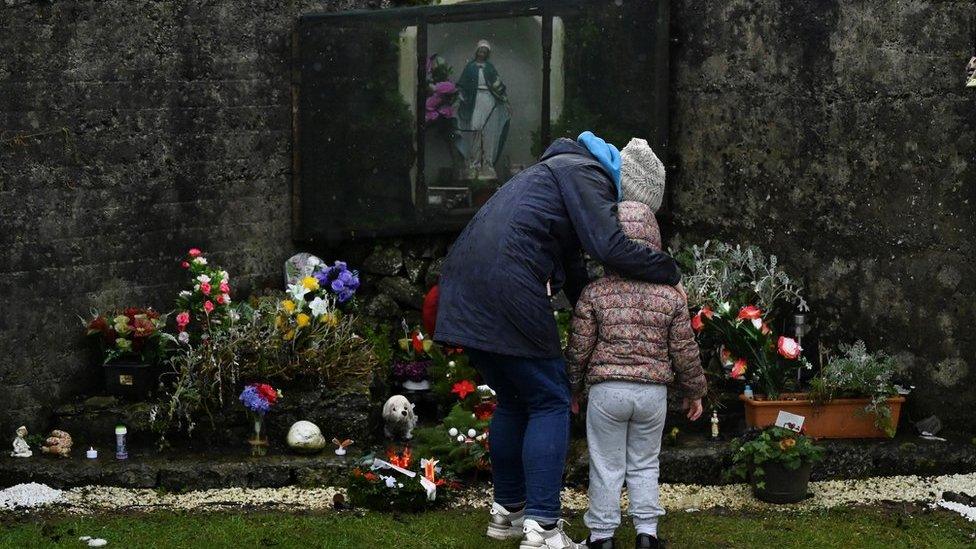NI mother-and-baby homes: 'Disclosure has to be a duty', says bishop
- Published
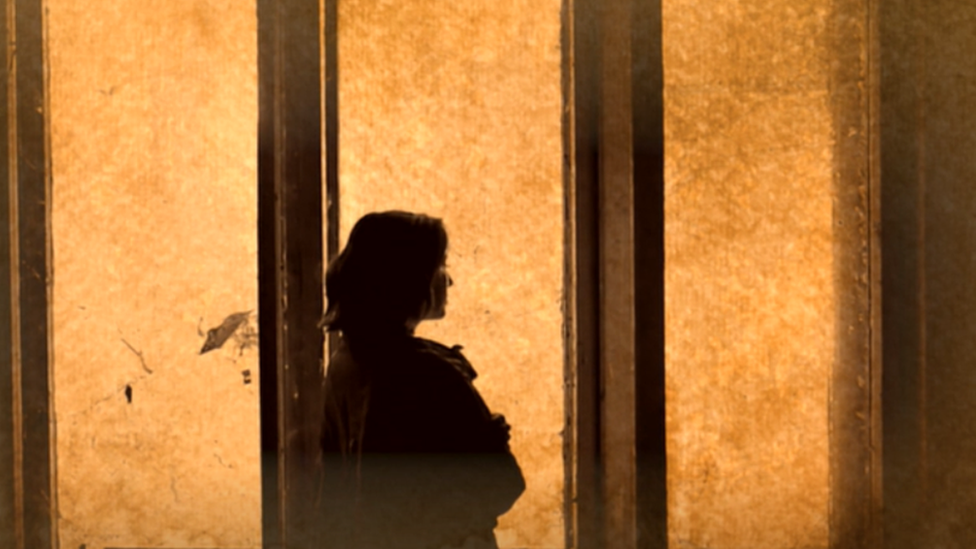
Thousands of women and girls entered the institutions in Northern Ireland over a 68-year period
The historic records of mother-and-baby homes in Northern Ireland should be released in full, the Bishop of Derry has said.
A Stormont-commissioned report, external estimated around 10,500 women entered homes here between 1922 and 1990.
However, due to incomplete records this figure may be much higher.
First Minister Arlene Foster said on Tuesday that the voices of survivors would be heard "loudly and clearly" with a new independent investigation.
The report examined eight mother-and-baby-homes, a number of former workhouses and four Magdalene Laundries. They were operated by both Catholic and Protestant churches as well as other religious organisations.
Mother-and-baby institutions housed women and girls who became pregnant outside marriage while laundries were Catholic-run workhouses that operated across the island of Ireland.
Bishop Donal McKeown said that "disclosure has to be a duty, any records that are there should be made available to any inquiry".
Speaking to BBC Radio Foyle, Bishop McKeown said he is "ashamed" the experiences of women in mother-and-baby-homes have not been taken more seriously in the past.
"If anyone is trying to hide records or destroy records - that is a crime - of course there is no reason why records should be withheld because people want to know who they are.
"They mightn't like what they find out when they discover who they are, the parent may not want to know them, but people have to have access to as much information as possible."
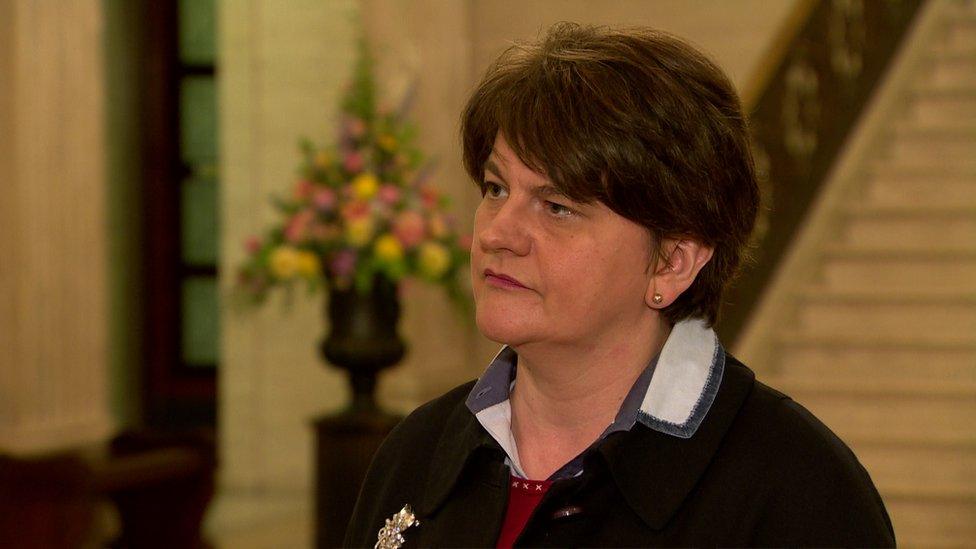
Arlene Foster says findings that some women and girls were the victims of sexual crimes in the report should be looked at further
Speaking to Good Morning Ulster on Wednesday, First Minister Arlene Foster would not commit to a public inquiry and said whether to do so or not would be shaped by the input of victims.
"I think a lot of those involved in the process do want a public inquiry and if that's what comes out of the discussions … then we will proceed with that."
However, Mrs Foster said the findings that some women and girls were victims of sexual crime should be looked at further.
"I think there is a need to get to the bottom of some of those cases because there may well be criminal acts that weren't investigated at that particular point of time, again because of society of that time."

What are the report's key findings?
It describes as a "conservative estimate" that over 10,500 women and girls entered the homes between 1922 and 1990
The majority of them were from NI (86%), with the remainder from the Republic of Ireland and Great Britain
About a third of those admitted were under the age of 19, with the youngest child to be admitted aged 12
A number were the victims of sexual crime, including rape and incest
Living conditions and care for residents were recorded in little detail but personal testimonies revealed "strenuous physical labour" being expected of them late into their pregnancies
It is "indisputable" that there was "considerable movement" of babies from some of the homes in NI to the Republic of Ireland

Judith Gillespie, who chaired the executive's independent inter-departmental working group on the homes said she was shocked by the age of the girls who were in these institutions.
"Many were very naïve and didn't understand what had happened to them, didn't receive any sex education in any circumstances.
"That's what shocked me the most, the judgement on these girls who were victims, certainly not preparators, had no reason at all to feel shame or guilt, yet that shame or guilt was hoisted on them."
Church of Ireland Archbishop of Armagh, the Most Reverend John McDowell, said he "acknowledged with shame that members of the Church of Ireland stigmatised women and children in a way which was very far removed from Christian principles and which resulted in an unloving, cold and judgmental attitude towards pregnant women who deserved better".
'The birth of a child should always be a time for happiness, and that many young women experienced it as joyless and cold is a matter for bitter regret.
"I am sorry and apologise for the role we played in treating unmarried women and their children in this way. They deserved much better."

'Just open it up and shine a light'- a survivor speaks
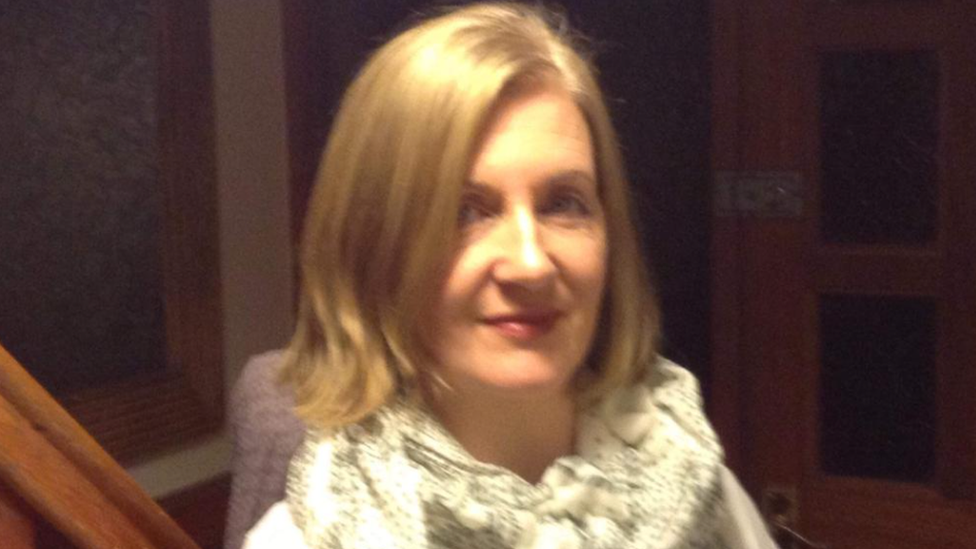
As a teenager, Catroina Cunningham was sent to Marianvale mother-and-baby home in Newry, County Down.
A Londonderry woman who had her daughter in a mother-and-baby home said the report into the institutions is a "stepping stone" to a full public inquiry.
As a teenager, Catroina Cunningham was sent to Marianvale mother-and-baby home in Newry, County Down.
The report found that about a third of those admitted were under the age of 19, with the youngest child to be admitted aged 12.
"Women are very scared to talk to people because they wonder where their testimonies are going," said Ms Cunningham.
"But due to this (report) if they are able to take part then hopefully this will lead to a statutory inquiry down the line.
"No stone unturned, no secrets, just open it up and just shine a light on everything that has happened."
She added: "I am one of the lucky ones - I got my daughter back.
"A lot of people didn't get their children back, a lot of people found their mothers had died before they could track them down.
"My daughter is very aware of everything that happened. She is aware that I was there and that she was fostered for three months.
"As a family we are very open - there is no shame - I did ask her if she was ever embarrassed and she said: 'Why would I ever be embarrassed? I am proud of you mum.'"
Related topics
- Published26 January 2021

- Published26 January 2021
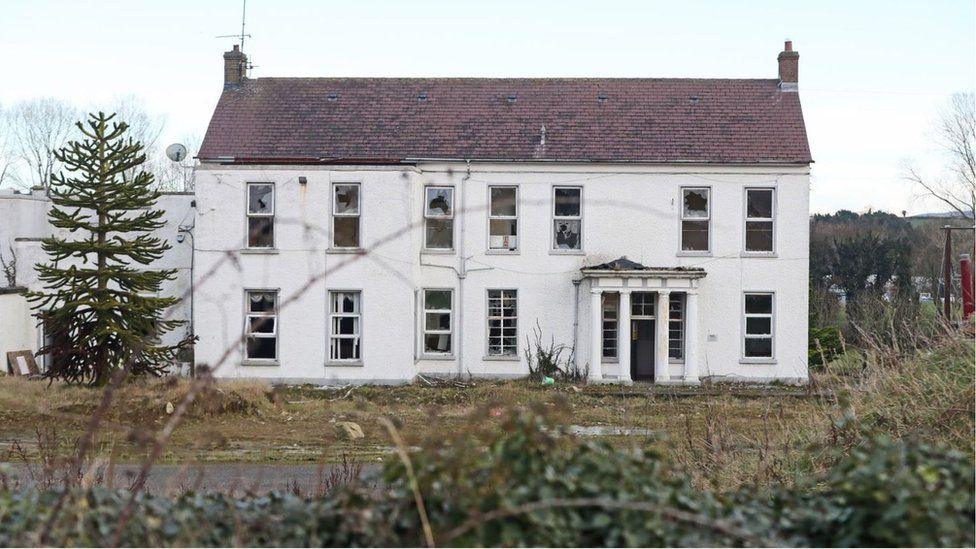
- Published14 September 2020
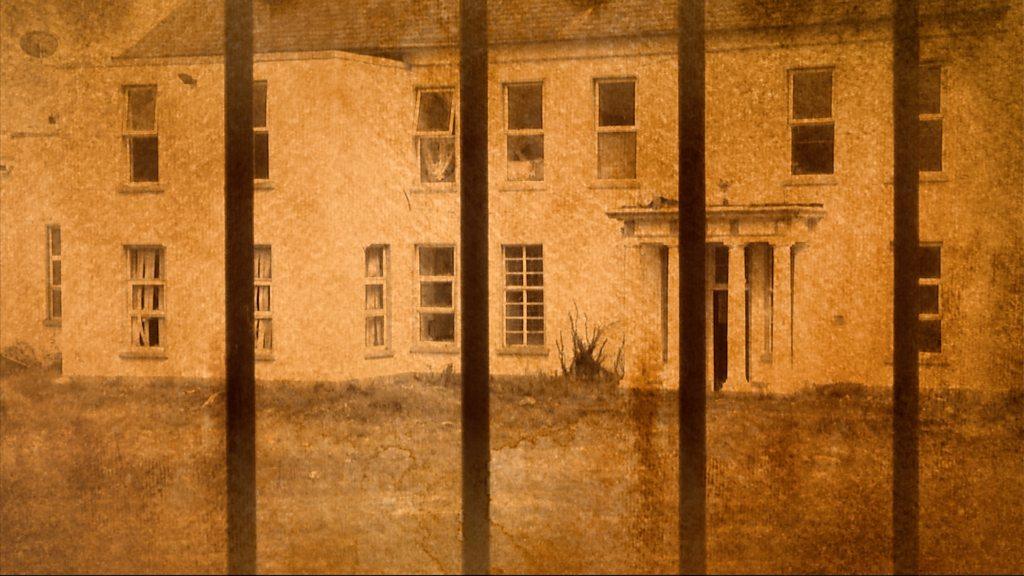
- Published15 January 2021
